East side of 7th Floor, No. 3663, North
Zhongshan Road, Shanghai, China, 200062
Tel: +86 21 6223 2322
www.smile.ecnu.edu.cn
On the morning of July 3, 2025, the China launch for the new book Family and Intergenerational Literacy and Learning: International Perspectivesand the presentation of intergenerational learning research achievements by the Shanghai Municipal Institute for Lifelong Education (SMILE) were successfully held at the Small Auditorium of the Administration Building, East China Normal University (ECNU), Shanghai. The event was co-hosted by the UNESCO Institute for Lifelong Learning (UIL) and SMILE.
Focusing on the theme of family and intergenerational learning, the event brought together scholars and researchers from UNESCO, Pennsylvania State University (USA), the University of Vienna (Austria), Durham University (UK), East China Normal University, Shanghai Jiao Tong University, Shanghai Open University, Shanghai Polytechnic University, Jiangnan University, Hangzhou Normal University, and Quanzhou Normal University. Participants engaged in in-depth exchanges and discussions on topics including family education, intergenerational relations, and the global trends and Chinese practices of lifelong learning systems.
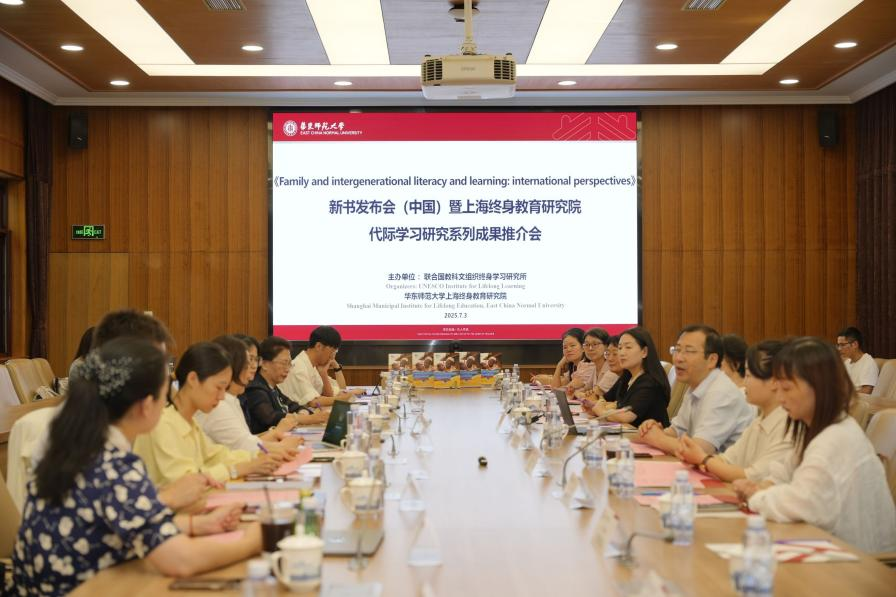
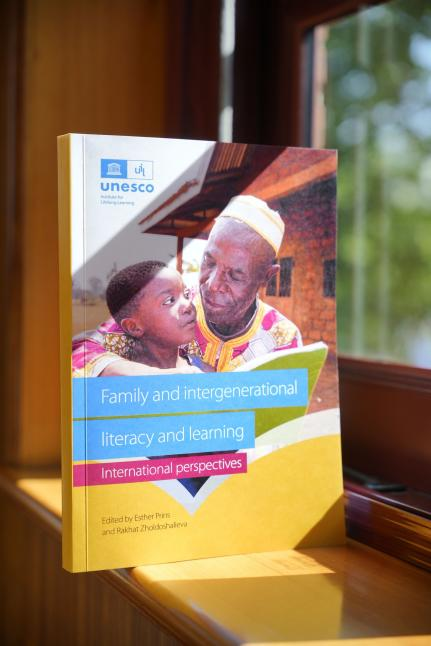
Prof. Li Jiacheng, Executive Vice Presidentof SMILE, delivered the opening remarks and extended heartfelt thanks to international experts who have long supported research on intergenerational learning.
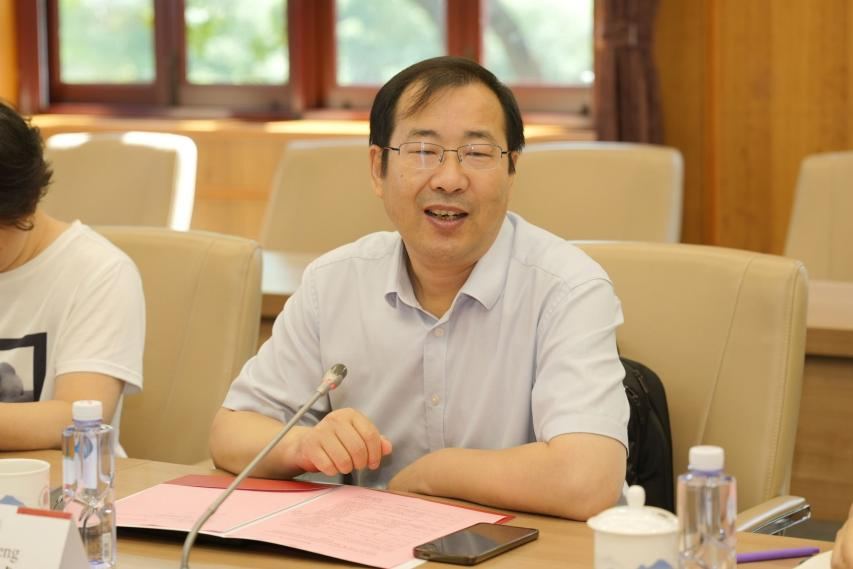
Dr. Esther Prins, Professor at The Pennsylvania State University and one of the book's editors, offered a video reflection on the book’s journey and its role in advancing global research on intergenerational literacy.She emphasized that existing international studies on family and intergenerational literacy have often focused on high-income and English-speaking countries. In contrast, this book breaks through such geographical boundaries by systematically presenting research and practice from low- and middle-income as well as non-English-speaking countries, thereby advancing the pluralization of global educational discourse.
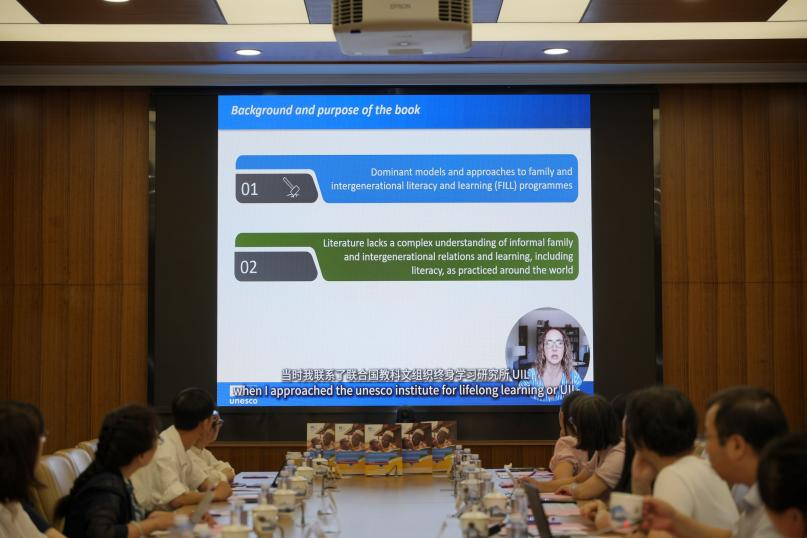
Dr. Rakhat Zholdoshalieva, Programme Specialist at UIL, delivered a keynote speech, presenting UNESCO's strategic vision and global initiatives in promoting intergenerational learning. She stressed the essential role of families and communities in fostering inclusive lifelong learning ecosystems and commended China’s contributions and innovations in this field.
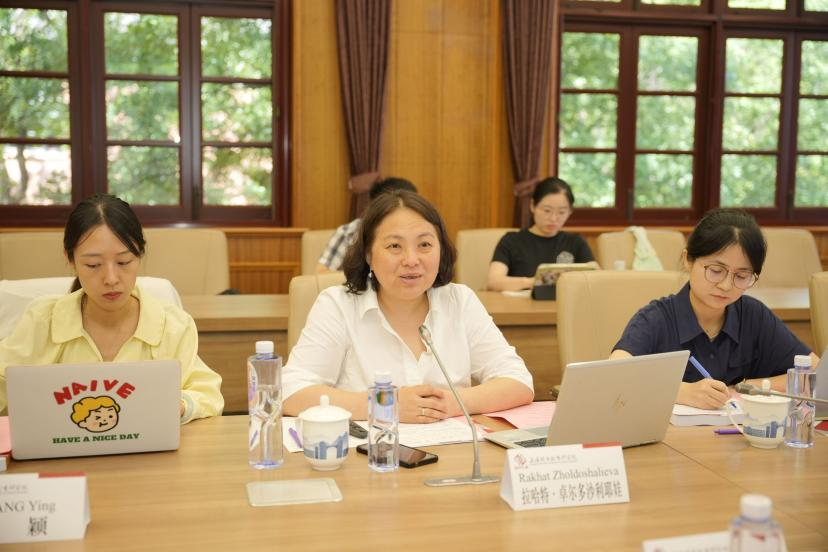
Dr. Li Yan, part-time researcher of SMILE and appointed associate professorat department of educationof Jiangnan University, presented Chapter 9 of the book, titled “Parental involvement in children's early learning at home: A study in rural China”. Her presentation analyzed the structural logic of rural parental involvement in early childhood home learning and highlighted her team's long-term research on school-family-community collaboration in China.
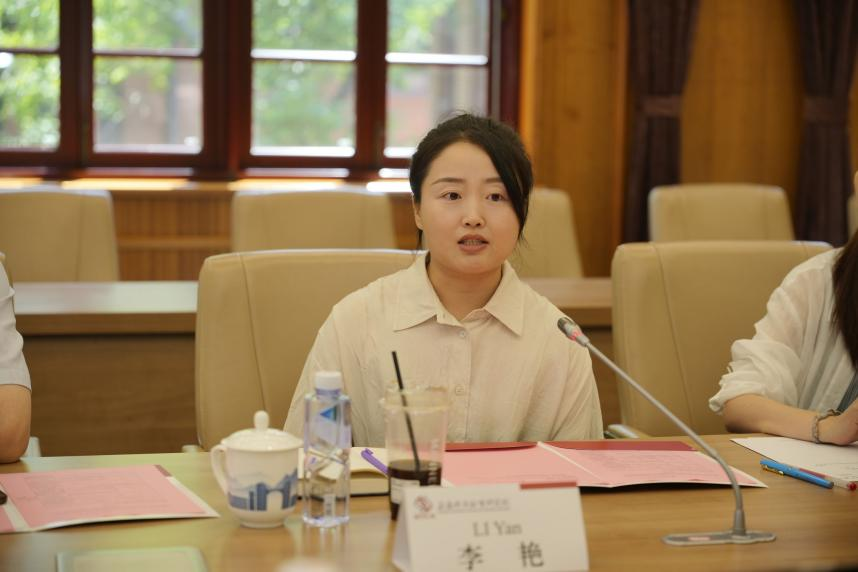
In the session for promoting intergenerational learning achievements, Dr. Lü Keyi, part-time researcher of SMILEand lecturer at Hangzhou Normal University, introduced the editorial background, overall structure, and current progress of the forthcoming special issue on intergenerational learning, which is edited by SMILE. She emphasized that this special issue will serve as a concentrated presentation of the phased outcomes of China’s national intergenerational learning research community.
Professor Li Jiacheng further reviewed the theoretical explorations and practical innovations carried out by the intergenerational learning research team at the Shanghai Institute for Lifelong Education since 2006 in areas such as ‘co-learning and mutual learning’and ‘intergenerational co-education’.He showcased the Chinese pathway for intergenerational learning, which is grounded in the integration of family, school, and community, and highlighted the substantial results that have already been achieved.
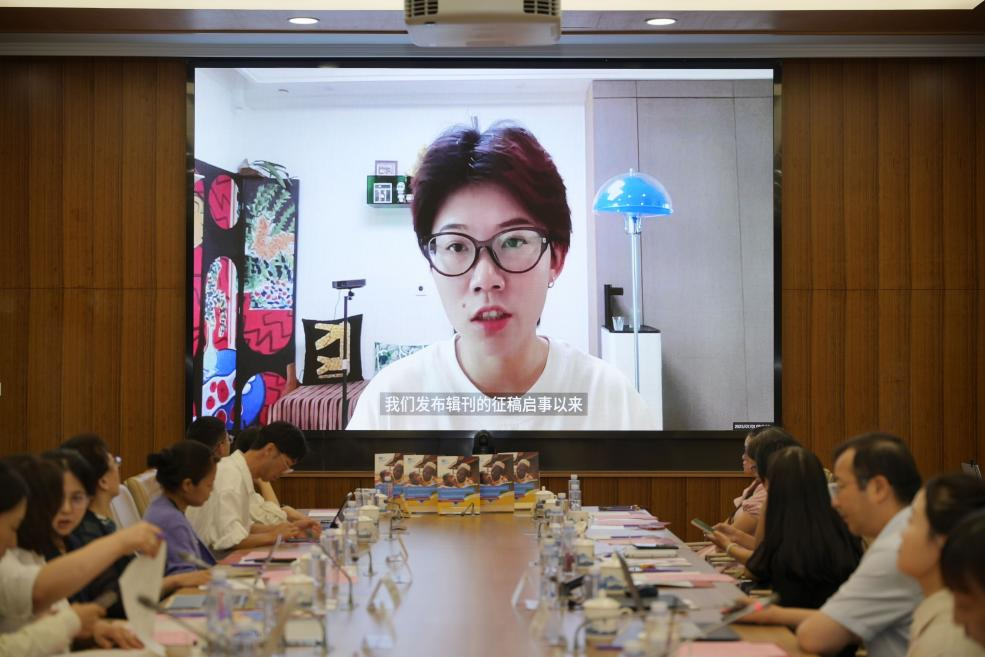
Dr. Zhang Lingli, part-time researcher of SMILE and lecturer at Quanzhou Normal University, presented on behalf of the translation team the progress of the Chinese version of research findings related to intergenerational learning and the translation philosophy, emphasizing the value of multilingual expression for cross-cultural educational communication.
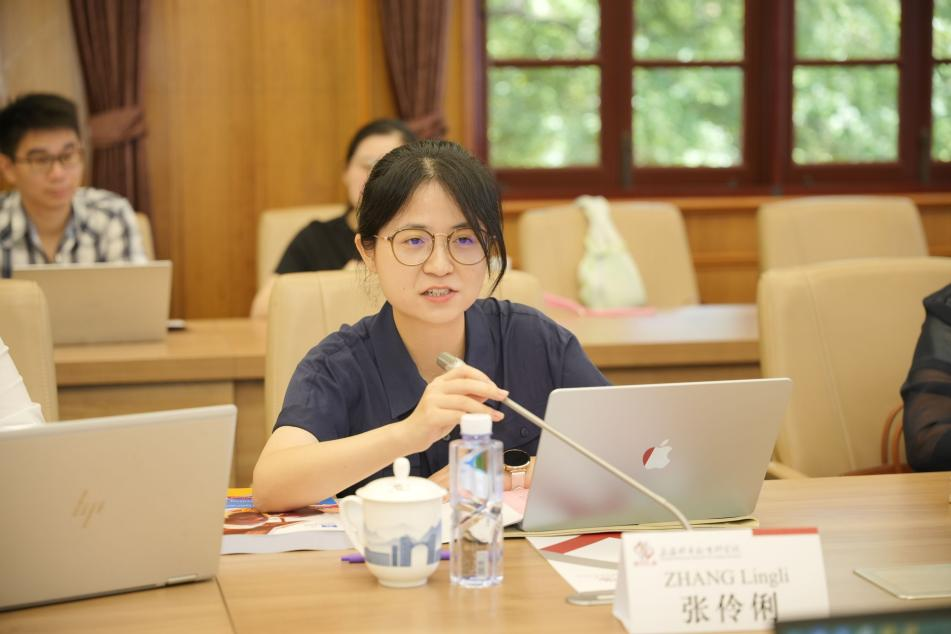
A lively and inspiring exchange session followed, with constructive input from Prof. Zhang Wenming (Deputy Director, National Institutes of Education Policy Research of ECNU), Researcher Tan Xu, Academic Committee Member of the China Adult Education Association and Honorary Chairman of the Editorial Board of Adult Education Journal,Dr. Zhang Xiaoqiao (Assistant Professor, Shanghai Jiao Tong University), Dr. Jin Tinghe (Durham University), as well as principals and front-line researchers. The discussion focused on the cultural foundations, policy mechanisms, and feasibility in practiceof intergenerational learning, demonstrating the deep integration of local experience and global dialogue.

Participants agreed that the event was not only a high-level dissemination of recent research results, but also a high-quality platform for connecting international perspectives with Chinese research and practice. The event helped advance intergenerational learning from conceptual exploration to practical transformation, and from academic dialogue to collaborative implementation.
